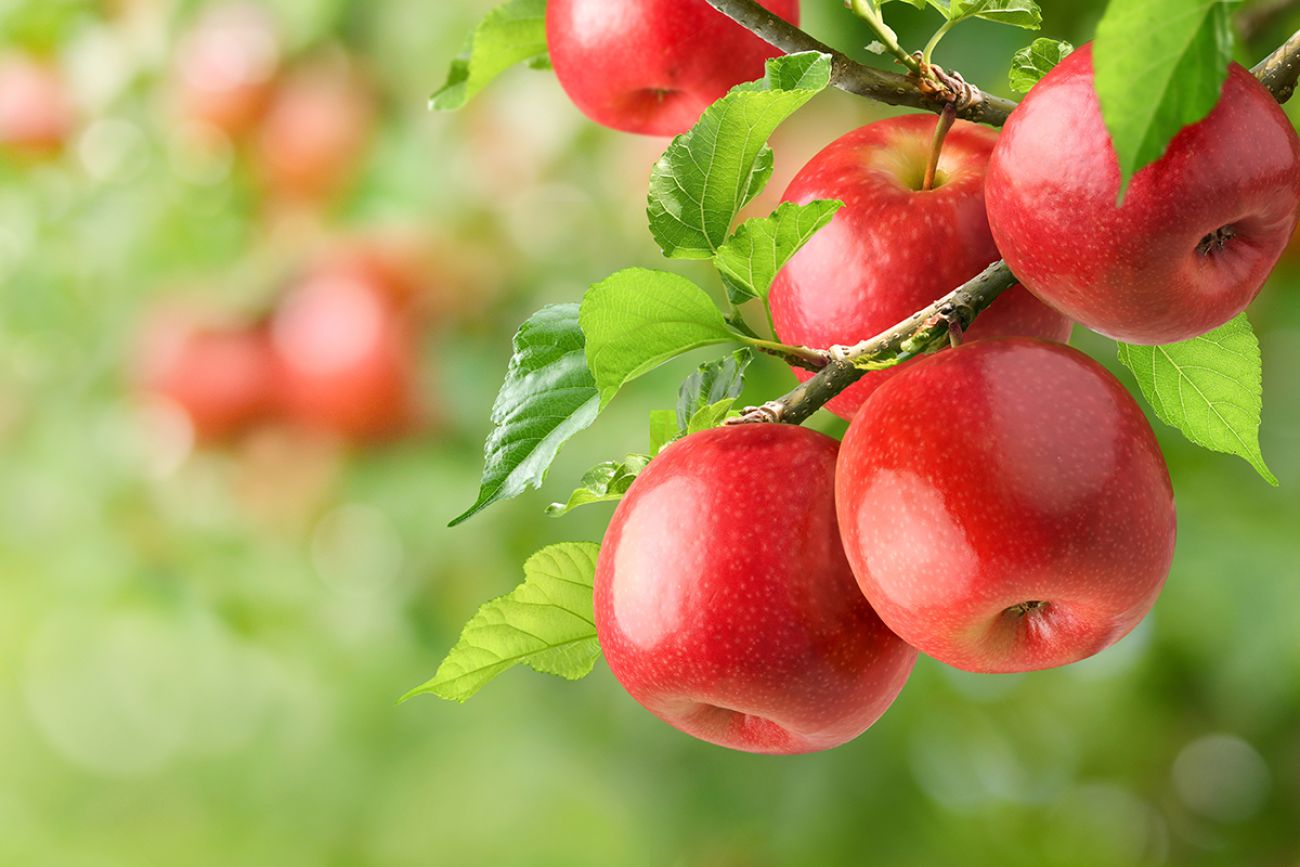Colder winter a hopeful sign for this year's fruit crop, Michigan growers say

- Fluctuating temperatures and mild winters in recent years put crops at risk for early buds and frost damage
- This year's colder winter weather offers hope for a smoother spring
- Overproduction of crops could lower prices and hurt farmer profits
Dennis Strahle is not a professional farmer but grows apples, pawpaws, apricots, persimmons and several types of cherries and nuts.
Strahle, who is president of the Michigan Nut and Fruit Growers Association, said around this time last year, the Cornelian cherries and one of his plum trees were in full bloom. The apricots and apples were also very close to breaking bloom, which was too early for the time of year.
However this year, things have turned around for the self-proclaimed backyard grower.
“The thing nature can do is just let spring be a nice, slow spring and when they do blossom out, it's nice not to have any frosts after that,” he said. “That's what gets us in trouble, are these late spring frosts.”
Michigan farmers have faced challenges in recent years from fluctuating spring temperatures and milder winters, which are a threat to crops. But this year's conditions offer hope.
“As far as the trees, the health condition right now is they're pretty healthy but they are still dormant,” said Greg Shooks, owner of Shooks Farm in Central Lake, about 45 minutes north of Traverse City. “A lot of their nutrients are still stored in the roots.”
During dormancy, fruit trees go into a resting state and conserve energy and nutrients to survive the cold weather. The average plant in Michigan needs about 1,000 chilling hours between 35 and 45 degrees Fahrenheit before they can “wake up.”
Related:
- Fruit trees are budding, Michigan farmers are worried about crops freezing
- Unseasonably warm weather in Michigan a challenge for fruit farmers
However, in recent years, Michigan winters have been warmer than usual.
Fluctuating temperatures last year caused farmers to worry that their crops would start to freeze, after a warm spell last February when temperatures reached 70 degrees across the state. Fluctuating weather patterns later in the year also impacted cherry season, when production was down due to a hail storm in mid-July.
The Michigan Apple Committee estimates that growers harvested roughly 30 million bushels of apples in 2024, down from nearly 32 million in 2022.
While the state experienced a couple more unusually warm days in February this year, it wasn’t enough to prematurely bring the trees out of dormancy, putting them at risk of freezing when temperatures cooled down again.
“As brutal as it was up in our area, it was a pretty ideal weather winter for the trees and vines,” Shooks said.
If temperatures stay warm too long, crops start to bud early, risking spring and summer fruit production when it cools down. But farmers say, so far so good.
“Every year you come into the spring pretty optimistic and you hope that weather plays in your favor for a nice, smooth transition into spring,” Shooks said.
More crops, more problems
While every farmer hopes that they have a good spring and summer harvest, more product on the market drives prices down.
“Farmers always are going to depend on having a good crop,” said Loren Koeman, lead economist for the Michigan Farm Bureau. “The way the farmer gets paid is by harvesting that crop and the more crop you harvest, obviously, the better you're going to do.”
Crops like apples and cherries that are abundant in Michigan can be more profitable for farmers, Koeman said. But during seasons when there is an overabundance of product, prices drop, which is good for the consumer but not so much for the farmer.
“A very abundant supply … that's leading to lower prices and we're looking at likely forecasting losses for many of the farms that are going to be planting those crops this spring,” Koeman said.
But selling some crops, even if they aren’t very profitable, is better than selling no crops at all.
“If you already have the land, you already have the equipment and all that, sometimes you want to plant, even if it is a small loss, because if you didn't plant … you’d still have to pay for all of these things and you’d have an even greater loss,” he said.
Business Watch
Covering the intersection of business and policy, and informing Michigan employers and workers on the long road back from coronavirus.
- About Business Watch
- Subscribe
- Share tips and questions with Bridge Business Editor Paula Gardner
Thanks to our Business Watch sponsors.
Support Bridge's nonprofit civic journalism. Donate today.
See what new members are saying about why they donated to Bridge Michigan:
- “In order for this information to be accurate and unbiased it must be underwritten by its readers, not by special interests.” - Larry S.
- “Not many other media sources report on the topics Bridge does.” - Susan B.
- “Your journalism is outstanding and rare these days.” - Mark S.
If you want to ensure the future of nonpartisan, nonprofit Michigan journalism, please become a member today. You, too, will be asked why you donated and maybe we'll feature your quote next time!




